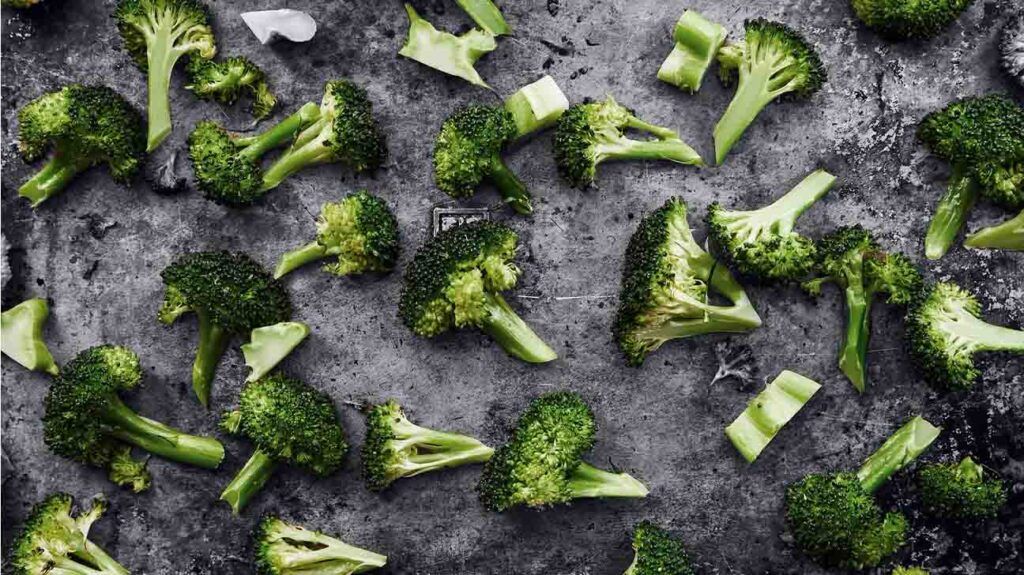Broccoli is a vegetable that may cause excess gas in some people. Health experts suggest this may result from how a person’s body breaks down the carbohydrates, such as fiber, in broccoli.
Experiencing symptoms of excess gas occasionally is normal, but they may become a problem if people experience them often or if they affect their daily activities. A person’s diet can affect how much gas they produce, and eating certain foods may worsen symptoms.
This article explores why broccoli can cause gas in more detail. The article also explores the benefits of eating broccoli as part of a healthy diet, other foods that may cause gas, and tips for managing and preventing gas.
Nutrition resources
For more science-backed resources on nutrition, visit our dedicated hub.

According to the International Foundation for Gastrointestinal Disorders (IFFGD), broccoli is a food that is more likely to cause gas.
The IFFGD explains that carbohydrates in foods, such as broccoli, may occur as sugars, starches, and fiber.
The body breaks down these carbohydrates in the intestines, taking out essential nutrients for energy. However, carbohydrates can produce gas as they break down in the large intestine, or colon.
Broccoli also contains soluble and insoluble dietary fiber. While soluble dietary fiber absorbs water, insoluble fiber does not. The IFFGD notes that while these fibers can help relieve symptoms of gas, consuming too much of one type may worsen someone’s symptoms.
Additionally, the effects of these different fibers may vary between individuals, so some people may experience more gas than others after consuming one type of dietary fiber.
According to research, broccoli also contains small amounts of certain sugars that healthcare professionals call fructooligosaccharides (FOS) and raffinose family oligosaccharides (RFOs). These compounds act as prebiotics for the bacteria in the colon.
Prebiotics are a food source for the bacteria to digest. As the bacteria digest the sugar in broccoli, they may produce gas in the process. While research suggests that prebiotics are beneficial for the immune system, they can also give some people excess gas.
While broccoli may cause gas, it is also a healthy vegetable with multiple nutritional benefits as part of a balanced diet.
According to a
The
- some vegetables, particularly cruciferous vegetables, such as collard greens, cauliflower, and kale
- beverages that contain high fructose corn syrup, including:
- sports drinks
- sodas
- energy drinks
- fruit juices
- certain fruits, such as apples, peaches, and pears
- gum, candy, or other products containing sweeteners ending in ”-ol” such as sorbitol, xylitol, and mannitol
- dairy products, including milk, ice cream, and yogurt
- legumes, which include peas, beans, and lentils
- whole grains, such as wheat
A person may consider limiting these foods and drinks in their diet. However, they should speak with a healthcare professional before making any significant changes to their diet.
The
- talk with a healthcare professional, such as a nutritionist or dietitian, to identify which foods cause gas or if a person has a food intolerance
- avoid swallowing air by talking when eating, eating or drinking too quickly, or chewing gum
- eat smaller, more frequent meals rather than larger meals
- check with a dentist to ensure dentures fit correctly to reduce the amount of air someone may swallow
- ask a healthcare professional about whether digestive enzymes may be useful
- eat foods that are less likely to produce gas, such as:
Broccoli contains carbohydrates, such as dietary fibers, that can cause gas. This is because bacteria in the colon break down carbohydrates and produce gas as part of the digestive process.
However, broccoli is a healthy source of nutrients, such as antioxidants and vitamins, that can support a person’s overall health. Therefore, including broccoli in the diet can be beneficial for many people.
A person should speak with a doctor or healthcare professional, who specializes in diet and nutrition, to find out which foods may be triggering excess gas and find solutions to manage this. Eating smaller meals, avoiding swallowing additional air when eating, and limiting foods containing high fructose corn syrup may be beneficial.
